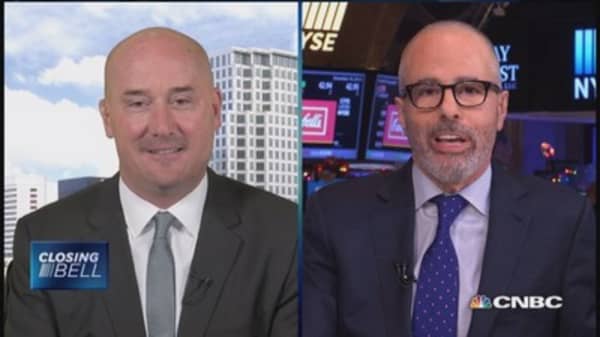Russia is a massive producer of crude oil and crude oil never really goes out of favor, nor do any energies or grains for very long, so I think the opportunity for investors may be to get into Russia on the current down cycle in both energies and grains (wheat especially from Russia) since neither commodity generally stays out of favor for very long.
Against the backdrop of slowing economic growth, sky-high interest rates, a leaky currency a sovereign credit rating that earlier this year was lowered by Standard & Poor's to BBB-, the lowest investment grade, investors' skepticism toward Russian shares is understandable.
Read MoreIs the bottom near for oil?
Against the backdrop of slowing economic growth, sky-high interest rates, a leaky currency a sovereign credit rating that earlier this year was lowered by Standard & Poor's to BBB-, the lowest investment grade, investors' skepticism toward Russian shares is understandable.
No, a rebound in RSX will not be a free lunch. The ETF is volatile. RSX has a three-year standard deviation of 25.8 percent, or nearly 1,100 basis points above that of the iShares MSCI Emerging Markets ETF (EEM).
Oil prices also need to rebound to lend efficacy to the long RSX thesis. Oil accounts for roughly half of Russian government receipts, by far the largest percentage among the major non-OPEC producers.
Still, what looks like panic today could open doors to a new Russia tomorrow with the country's established, vibrant consumer and transportation sectors leading a bounce, with help from rebounding oil prices, of course.
Commentary by Tom Lydon, CEO of Global Trends Investments and editor and publisher of ETF trends. Follow him on Twitter @TomLydon.
Read MoreOp-ed: Beware: Putin the wounded animal




